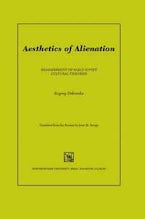A leading expert in Soviet literature reveals how Socialist Realism arose from within the ranks of the literati; This provocative work takes issue with the idea that Socialist Realism was mainly the creation of party leaders and was imposed from above on the literati who lived and worked under the Soviet regime. Evgeny Dobrenko, a leading expert on Soviet literature, argues instead - and offers persuasive evidence - that the aesthetic theories underpinning Socialist Realism arose among the writers themselves, born of their proponents' desire for power in the realm of literary policymaking. Accordingly, Dobrenko closely considers the evolution of these theories, deciphering the power relations and social conditions that helped to shape them. In chapters on Proletkult, RAPP, LEF, and Pereval, Dobrenko reexamines the theories generated by these major Marxist literary groupings of the early Soviet Union. He shows how each approached the problems of literature's response to the presumed social mandate of the young communist society, and how Socialist Realism emerged as a conglomerate of these earlier, revolutionary theories.
1. The Academy of Poetry and Russian Society; 2. Proletkult: ""The Music of Revolution""; or, Creation without Creators; 3. RAPP: The Aesthetics of Restraint; or, Worldview as Creation; 4. LEF: The Third Factory as ""New Aesthetic Enterprise""; 5. Pereval: ""Organic Creativity""; or, Hands for the Hourglass; 6. The ""Social Mandate""; or, Flexion in an Inflexible Time; 7. Socialist Realism: The Petrified Utopia

